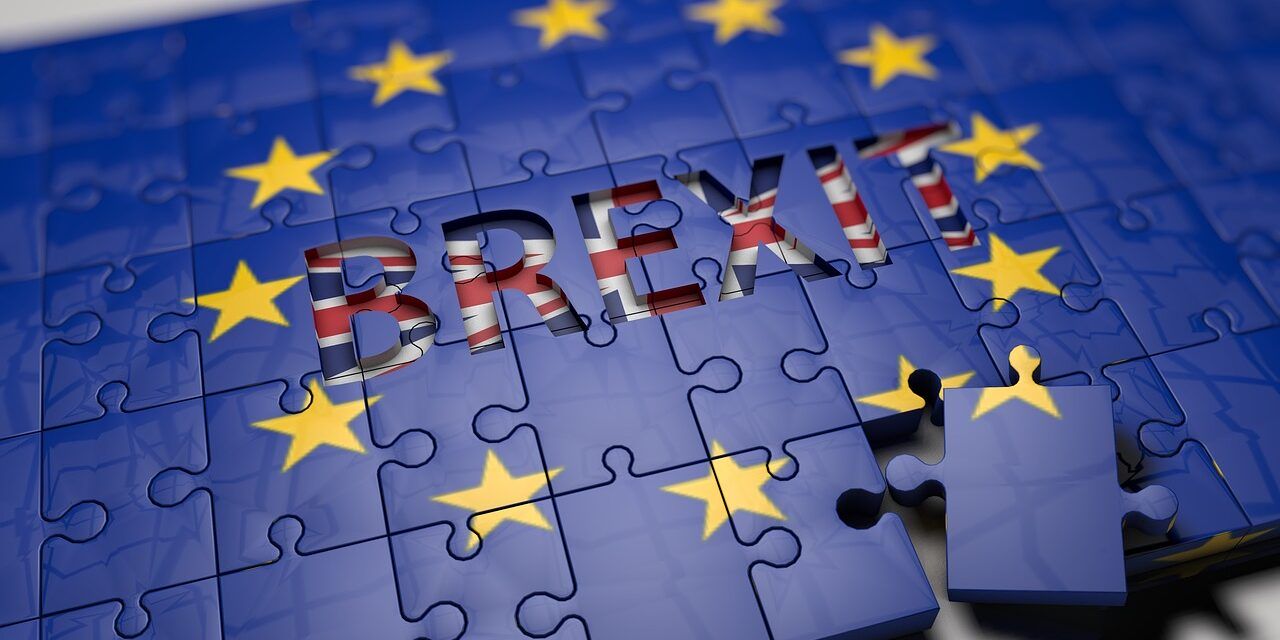Few people outside the UK realise that six years have already passed in June this year since the day the British people decided in a referendum to leave the structures of the European Union. Global events of recent years, such as the COVIDCovid-19 pandemic or the outbreak of war in Ukraine, have slightly overshadowed the media attention directed towards the UK’s withdrawal. However, the phenomenon of Brexit still continues to have far- reaching implications for every sector of the economy, with wide- reaching consequences for everyday life. These effects will certainly remain with us for many decades to come. Therefore, the question of the separation of long and deeply integrated economies has become the focus of social, economic and legal research.

One of the most recent studies in this matter has been prepared by Bartosz Brzyski from Kochański & Partners Law Firm. In his Master’s thesis titled The Legal and Economic Relationship between the United Kingdom and the European Union. A Comprehensive Overview of Past and Future Cooperation, Bartosz provides a high-level overview of the past and future EU-UK relationship from a primarily legal, but also partly economic perspective. As the withdrawal process affects the legal form of international cooperation, the results of the adopted changes are becoming apparent on social and economic levels. These intertwined dimensions are the best evidence for the discussion on whether Brexit can be deemed as having had a positive or negative outcome. However, for this to happen, the legal research must be followed by some reference to non-legal matters. And hence, the aim of this thesis is to postulate a preliminary answer to the question: ‘In economic terms, has the UK benefited from leaving the European Union?’
While conceding that the long-term effects of Brexit are impossible to precisely foresee at this early stage, the key findings of the study include the following:
- A historical analysis proves that the UK has always been an unusual partner for the EU. From the very beginning, it expressed reservations about joining the organisations forming in continental Europe (e.g. the first ‘in-out’ referendum in 1975), and also secured multiple opt-outs from key EU obligations. This leads to the observation, that should the UK have remained an EU member state, there was a high probability that it would continue to participate in the European Union and the single market on much different terms than other members.
- An analysis of the short-term consequences demonstrates that Brexit has not been economically beneficial to the UK up to this point. The presentation of the referendum results in 2016 alone generated massive financial turmoil on the worldwide markets, with increasing economic uncertainty influencing many investors to refrain from making further investments in Great Britain or even to withdraw completely.
- The UK had multiple options to choose from in terms of a new model of economic partnership with the EU, but in the end the option of a free- trade agreement was selected. The newly negotiated EU-UK Trade and Cooperation Agreement (TCA), which aims to supersede the cooperation within the core of the European Union, does not provide the same level of economic comfort as could have been enjoyed from remaining an EU member state.
- The effects of Brexit are different in various sectors of the economy, and in some sense can be of a rather subjective nature. For example, the apparent negative effects concerning the energy market are not equal to the effects visible in terms of cross-border trade in goods. However, as experts indicate, Brexit led to a sudden and persistent 25% fall in UK imports from the EU, relative to the rest of the world1. It also forced many businesses to cease trading with the UK altogether.
- Additional economic difficulties created by Brexit include labour shortages, rising food prices, changes in the value of currency, increased non-tariff barriers (such as additional formalities and sanitary checks on UK exports), and other obstacles for running cross-border businesses. At the same time, no governmental report has been able to demonstrate any genuinely beneficial economic effects of Brexit to date.
The full text of the thesis provides a brief historical background of the formation of the EU we know today, and the role that the UK has played in this process. It also outlines the prelude to ‘Brexit’, including a thorough description of the legal procedure which is required to leave the EU. The work should help the reader to understand the impact of Brexit, the changes it introduced, and the substance of the legal form of the new international cooperation.
Sharing the conclusions of this interesting thesis, on behalf of Kochański & Partners Law Firm, we would like to congratulate Bartosz Brzyski once again on graduating from law school, the highest grade on submission, and joining the legal profession.
1 R. Freeman, K. Manova, T. Prayer, T. Sampson, Brexit: the major trade disruption came after the UK-EU agreement took effect in 2021, London School of Economics and Political Science, 26 April 2022, //blogs.lse.ac.uk/businessreview/2022/04/26/brexit-the-major-trade-disruption-came-after-the-uk-eu-agreement-took-effect-in-2021/ [access: 22 May 2022].




























